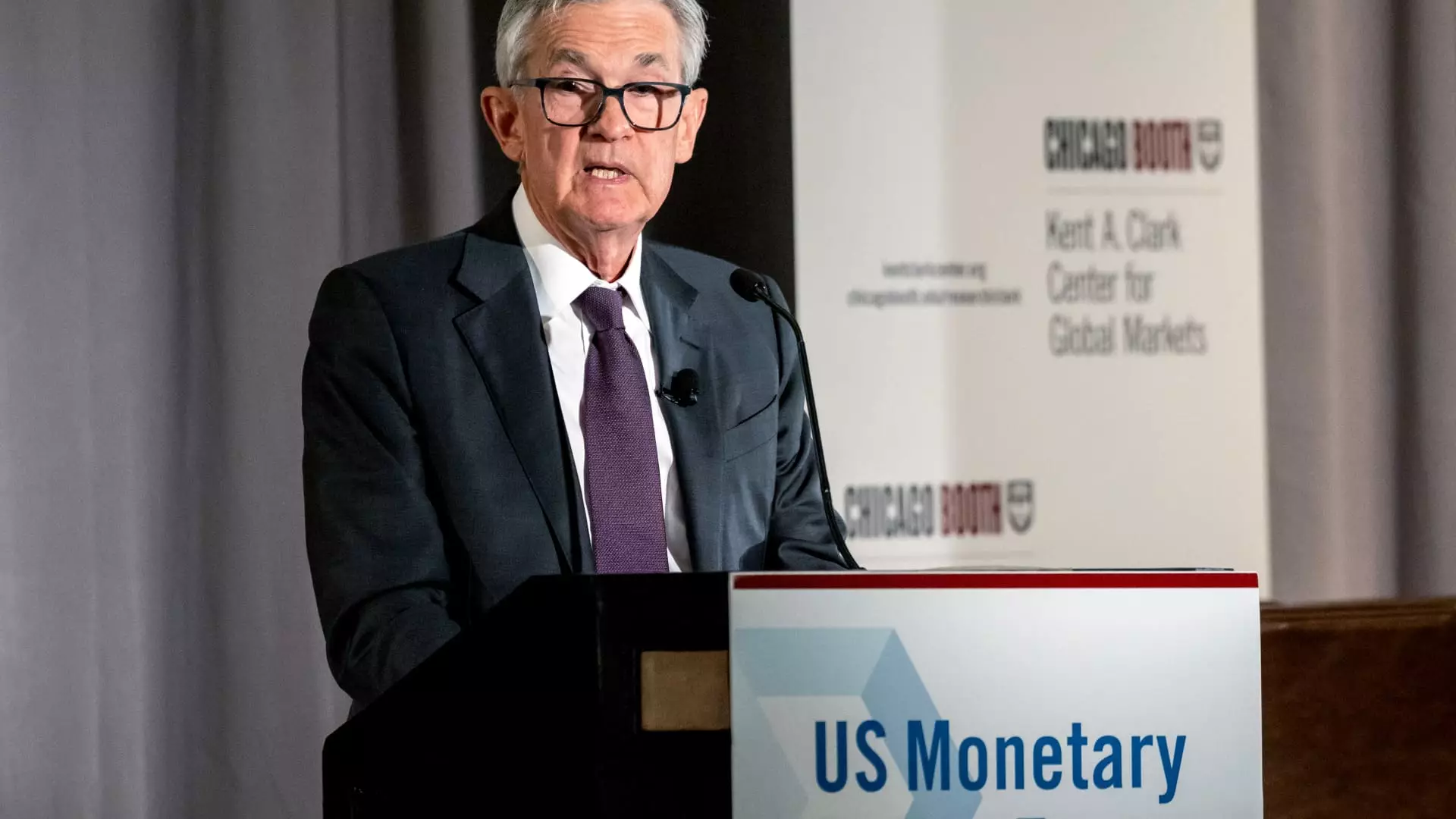In a world that often demands swift action, Federal Reserve Chairman Jerome Powell’s recent statements underline an essential truth: sometimes, the best strategy is patience. With President Donald Trump poised to implement an aggressive array of policy changes across trade, immigration, fiscal policy, and regulation, the Fed finds itself in a precarious balancing act. Powell’s approach, advocating a measured response to economic shifts, navigates the tumultuous waters of uncertainty that Trump’s presidency has wrought on the financial landscape. This perspective is crucial, especially as the markets wrestle with the repercussions of these potential policy shifts.
The prevailing narrative suggests an urgency to react to the president’s proposals—most notably, the anticipated tariffs that have rattled global markets. However, Powell’s confidence in the Fed’s ability to remain level-headed in face of such discord is refreshing. By emphasizing the need to gather further clarity before making significant interest rate decisions, he sends a clarion call of rationality amid volatility. This insight into the Fed’s rationale reaffirms the importance of distinguishing genuine economic indicators from the cacophony of speculation that often clouds judgment.
Tariffs and the Tangible Impact on the Economy
One cannot understate the considerable influence that Trump’s tariffs could have on economic stability. Market expectations have already begun to price in the potential for three quarter-point cuts in interest rates, a move reflective of anxiety over the president’s strategies. However, Powell’s assertion contends that these fears may not warrant immediate action. He suggests that while tariffs may introduce a new layer of complications, the Fed remains equipped to navigate these changes without succumbing to the pressure of a hasty response.
Importantly, the chairman articulated that what truly matters is the cumulative effect of all policy changes emanating from the White House. This points to the reality that while tariffs are loud and contentious, they are part of a broader economic puzzle. The Fed’s role will be to sift through the noise to discern what actions are genuinely detrimental versus those that are manageable. This patience demonstrates a mature understanding of the interconnectedness of the global economy, an approach that resonates with center-right ideals of calculated risk and responsible oversight.
Market Sentiment: A Reflection of Economic Health?
Powell’s observations regarding current market sentiment provide further insight into how superficial reactions can obscure deeper economic health. The chairman indicated that despite some uncertainty regarding inflation—often fueled by tariff angst—the fundamental aspects of the U.S. economy remain strong. The labor market is robust, with wage growth outpacing inflation, presenting a stabilizing factor that the Fed must consider in its decision-making process.
It’s easy for observers to lose sight of these positive indicators amid the ongoing tumult. The recent labor reports indicating a gain of 151,000 nonfarm jobs in February, even if marginally short of expectations, reflect an underlying strength. Yet, the tendency of traders to react to headlines rather than substantive economic data can lead to misguided policy expectations. Powell’s message, therefore, is a crucial reminder that the noise of headlines should not drown out the realities of economic performance.
Balancing Risks and Commitments
As Powell navigates these treacherous waters, the key remains to balance risk with commitment to the Fed’s dual mandate—ensuring maximum employment while maintaining price stability. His acknowledgment of the Fed’s interpretation of inflation as having “bumpy” pathways reflects a realist perspective, recognizing that no economic environment is without challenges.
The mention of “important upside risks for inflation” by Fed Governor Adriana Kugler alludes to the fact that inflation could rise as tariffs take effect. This complexity requires that the Fed remain vigilant, not reactive. The notion that policy is not “on a preset course” serves as a vital reminder that economic conditions can shift dramatically, and that adaptive policy-making is not just preferable—it’s necessary.
Through this lens of measured activism, Powell represents a voice of reason amid the clamor of uncertainty. His approach encapsulates a philosophical shift among policymakers: the value of patience and clarity over knee-jerk reactions. In these unpredictable times, such a stance serves not only the interests of American economic stability but also reaffirms the principles of responsible governance amidst fervent political storms.

